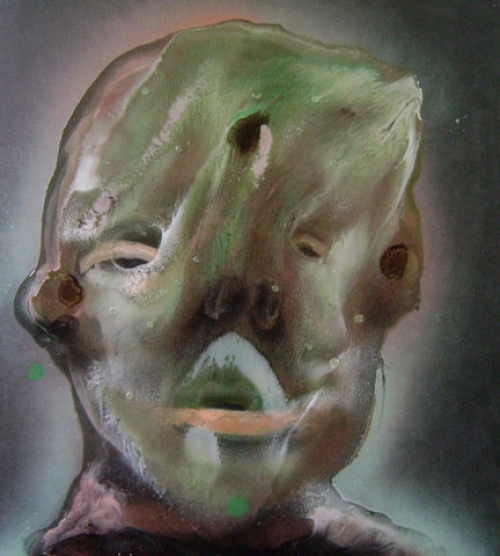Unlike the last collection of materials gleaned from Roberto Bolaño’s unpublished writings, Woes of the True Policeman does not come with an introduction by the late writer's literary executor (and Savage Detectives character) Ignacio Echevarría. Why? If you can read Spanish, you can see for yourself that Echevarría believes Woes was never intended to be published, much less described as an “unfinished” novel. It is more an early, aborted version of 2666, Bolaño's sprawling novel-universe about facile academics, reclusive writers, sad whores, declining madmen, the Mexican desert, and the worst of human monstrosity.
Oh well; at least there are interesting nuggets to be found in Woes. Certain characters are strikingly faithful in their appearance in later works — even if the facts of their fictional lives differ greatly. This overarching fidelity to personalities, in spite of differences of narrative fact, represents a different way of thinking about what constitutes character.
For instance: in Woes, the action turns on Oscar Amalfitano discovering that he is gay in middle age, but even though there is also an Oscar Amalfitano in 2666, this event is either absent from or completely obscure in the latter book. All the same, each Amalfitano is a frustrated Latin American leftist who loses a great love to AIDS. The lovers are both flighty, but in 2666 the lover is his ex-wife, now dead; in Woes the lover is the young man (a student) who introduces him to homosexuality.
Clearly, there are irresolvable differences of narrative fact here, and we’ll probably see fans arguing over what is or is not canon Bolaño. And that’ll be boring, because who gives a shit? The facticity of fiction! Not me.
More interesting is Bolaño’s continued investigation of a specific personality even as he changed the facts used to convey its characteristics. Fictive facts are still fiction, and their legitimacy is measured against our intuition of what makes a character tick. In the two Amalfitanos, there is a definite continuity of character, even if in one instantiation he self-describes as an “old faggot” and in another as a madman. Bolaño sustains enough of his lefty, Academic, Chilean exile personality across both iterations that they appear to be explorations of a similar concern.
Which brings to the fore how we form impressions of the individuals who confront us every day as an assemblage of habits, traits, tics, and flesh. We have no access to the facts of their personal history, but we make assumptions and construct narratives and mine rumor and Facebook in order to make sense of their actions, based on the fragments of their lives we do witness. A lot of the time the real facts of their history are lost in the impressions already made. Bolaño’s sense for how an overheard confession or a single, significant gesture can mar or define how we think of people, and examining how he fine-tuned Woes characters in later books illuminates a lot about how we intuit who a person is.
Or, we could forget all that and just rail against the money-hungry industry that sifts through a dead man's things looking for "unfinished works."
Image via but does it float





 A Black Balloon Publication ©
A Black Balloon Publication ©